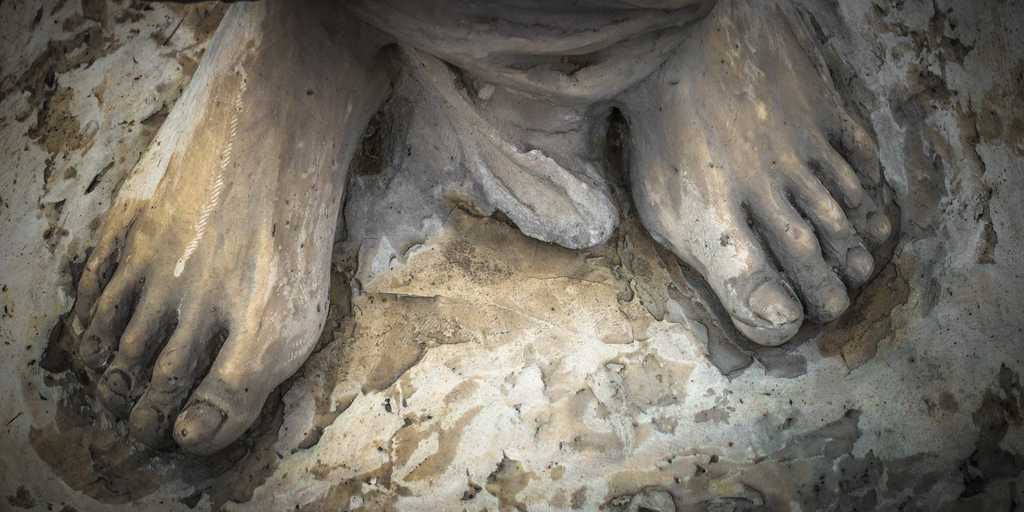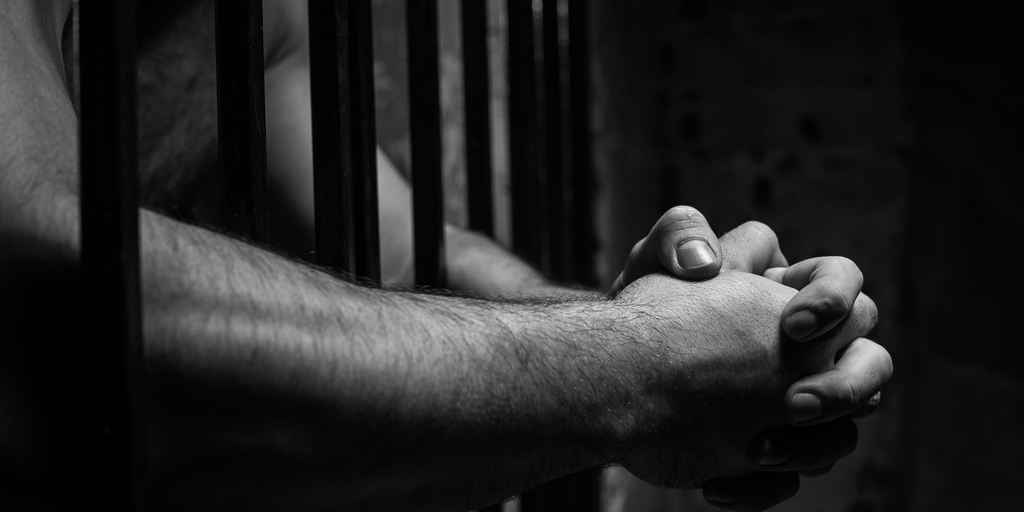He came where he was!

“But a certain Samaritan, as he journeyed, came where he was” (Luke 10:33)
These four words, “came where he was,” aptly describe the stoop that the Son of God made when He descended from those heights of glory that were eternally His, alongside of His Father, down to the depths to which sin had brought us.
The alienation that sin had put into our hearts was seen immediately at His lowly birth: “And she brought forth her firstborn son, and wrapped Him in swaddling clothes, and laid Him in a manger; because there was no room for them in the inn.” Likewise, at the beginning of His public ministry, at Nazareth when He began to preach the gospel to the poor, and they “rose up, and thrust Him out of the city, and led Him unto the brow of the hill upon which their city was built, that they might cast Him down headlong.” Later in His life, as this alienation became more and more apparent, the words of Psalm 118 were fulfilled: “The stone which the builders refused,” (v. 22), truly, He was cast aside as not fitting into their building and eventually crucified.
The effect of sin having come into this world was not only seen in our minds, but in our bodies too. Although He was rejected, yet He continued with the work that His Father had given Him to do. In Mark 6:56, we read, “And withersoever He entered, into villages, or cities, or country, they laid the sick in the streets, and besought Him that they might touch if it were but the border of His garment: and as many as touched Him were made whole.” As the man in Luke chapter 10 was wounded and half-dead, so were those brought to Him from villages, cities, and country, and the touch of faith was answered by His power. But as the virtue went out of Him, as He healed each one, so He felt in His spirit the ravages that sin had wrought, as we read in Matthew 8:17, “That it might be fulfilled which was spoken by Esaias the prophet, saying, Himself took our infirmities, and bare our sicknesses.”
We see also that sin had not only touched our bodies but it had defiled us morally. In Mark 7:32, we read, “And they bring unto Him one that was deaf, and had an impediment in his speech; and they beseech Him to put His hand upon him.” After putting His fingers into his ears and putting His spit upon his tongue, He looks up to heaven and He sighed. We understand that this word describes an unutterable inward feeling. This man could not have received anything from God because he was deaf; and he could not respond to God because he could not speak. So the Lord Jesus felt in His spirit the distance that sin had brought in between man and God, and expressed by that sigh the deep feelings of God: “And the Lord called unto Adam, and said unto him, Where art thou.” (Genesis 3:9).
But the ultimate effect of sin as to our bodies is death. The scene at the grave of Lazarus illustrates for us His deep feelings over this calamity as far as God is concerned, as well as the sorrow of those who had lost a loved one. “When Jesus therefore saw her weeping, and the Jews also weeping which came with her, He groaned in the spirit, and was troubled, and said, Where have ye laid him? They said unto Him, Lord, come and see. Jesus wept.” (John 11:33–35). Here we have three words expressing our Lord’s deep feelings: He groaned, an acute inward feeling that cannot be expressed in words; He was troubled, literally, agitated; and then, He wept. Inwardly His feelings could not be expressed by words, but His tears could be seen by all, what a comfort to those two sisters!
Not only did the Lord Jesus feel deeply the rejection of His own people, but in John 13:27 we read of the treachery of one that had consorted with Him for over three years: “And after the sop Satan entered into him. Then said Jesus unto him, That thou doest, do quickly.” Verse 30 says, “He then having received the sop went immediately out: and it was night.” So, humanly speaking was set in motion the awful happenings of that dark, dark night!
In chapter 18, verses 4 and 5, we read “Jesus therefore, knowing all things that should come upon Him, went forth, and said unto them, Whom seek ye? They answered Him, Jesus of Nazareth. Jesus saith unto them, I AM (he). And Judas also which betrayed Him, stood with them.” The moral darkness of that night is being made apparent. Judas, who had betrayed Him, stood with them. The light in which he had been privileged to stand, as being one of His disciples, had turned into deep darkness.
What sin had put into the heart of Judas, typical of the nation that was rejecting Him, as well as what our own hearts are capable of, is revealed by the light of His person! But He does not resist, truly, “He was lead as a lamb to the slaughter.”
But have we yet reached the depths of ruin that sin has wrought? No, we must follow Him through the hours of the “night in which He was betrayed.” One has so beautifully written;
Then dawned at last that day of dread,
When desolate, yet undismayed,
With wearied frame, and thorn crowned head,
He now forsaken and betrayed,
Went up for me to Calvary, and dying there, in grief and shame,
He saved me, blessed be His name.
If we see hatred and treachery in the heart of the Jews, we see cruelty and depravity in the heart of the Gentiles. Psalm 22:14 describes the sufferings of Christ in His spirit, body and soul: “I am poured out like water, and all my bones are out of joint: my heart is like wax; it is melted in the midst of my bowels.” Then as to the Gentiles: “For dogs have compassed me: the assembly of the wicked have enclosed me: they pierced my hands and my feet. I may tell all my bones: they look and stare upon me” (vv. 16–17). The two references to the bones of His precious body in these verses tell us of the intense suffering that crucifixion inflicts. It causes awful pain in the joints of the arms, chest, and shoulders and eventually makes breathing impossible.
But here we have to pause, because the depth of suffering He endured from the hand of a holy God, because “He was made sin,” is far beyond our ability to comprehend.
Truly, He came to where sin had brought us, the judgment of a Holy and Righteous God against sin and in bearing that judgment for us, has indeed saved us from that judgment and brought us into the knowledge of sins forgiven and being “reconciled to God by the death of His Son.” Truly, blessed be His name!




